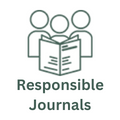Reading Heidegger
DOI:
https://doi.org/10.21501/23461780.1801Keywords:
Autofiction, Heidegger, irony, literatura, philosophy.Abstract
This paper intends to show the reception of Martin Heidegger’s Being and Time (1927) within Fernando Vallejo’s saga El río del tiempo (River of time) (1985-1994), especially in the novels El fuego secreto (The Secret Fire) (1987), and Entre fantasmas (Among Ghosts) (1993), as well as in the remaining references to the German philosopher in other novels of the Colombian writer. This analysis is done through reference to a series of explicit references to Heidegger’s work in Vallejo’s novels. In this sense, the conclusions refer to the contrast between the weight of the philosophical study and the irony of its reception.
Downloads
References
Aquino, Tomás de. (1957). Suma teológica. Madrid: Católica.
Bajtín, M. (1989). Teoría y estética de la novela: trabajos de investigación. Madrid: Taurus.
Beristáin, H. (1988). Diccionario de retórica y poética. México: Porrúa.
Diaconu, D. (2013). Fernando Vallejo y la autoficción. Coordenadas de un nuevo género narrativo. Bogotá: Universidad Nacional de Colombia, Biblioteca abierta.
Fonseca Fonseca, A. (2004). Against The World, Against Life: The Use and Abuse of the Autobiographical Genre in the Works of Fernando Vallejo. Trabajo de grado, Virginia Polytechnic Institute and State University. Recuperado de http://scholar.lib.vt.edu/theses/available/etd-
-133514/unrestricted/2fonseca.pdf
García Sierra, S. (2007). La realidad desquiciada: ficción, sátira y lo grotesco en la narrativa de Fernando Vallejo, trabajo de grado para optar al título de Magíster en literatura colombiana, Universidad de Antioquia, Medellín [sin publicador]. Recurso electrónico.
Heidegger, M. (1993). Sein und Zeit. Tübingen: Max Niemeyer Verlag.
Heidegger, M. (1995). El Ser y el tiempo. (Trad. José Gaos) Santafé de Bogotá: Fondo de Cultura Económica.
Heidegger, M. (2006). Ser y tiempo. Traducción de Jorge Eduardo Rivera. Madrid: Trotta.
Heidegger, M. (2006). La fenomenología del espíritu de Hegel. Madrid: Alianza.
Salazar Bondy, A. (2006). ¿Existe una filosofía de nuestra América? México: Siglo XXI.
Sławiński, J. (1989). Sobre la categoría del sujeto lírico. Textos y contextos, una ojeada en la literatura mundial, 2, 333-346. Recuperado de http://www.criterios.es/pdf/slawinskicategoriasujeto.pdf
Tedio. (2014). En Diccionario de la lengua española (23ª ed.). Recuperado de http://dle.rae.es/?id=ZJf6SDH
Vallejo, Fernando. (1984). Barba Jacob: El mensajero. Medellín: Séptimo Círculo.
Vallejo, F. (1999). El río del tiempo. Bogotá: Alfaguara.
Vallejo, Fernando. (2003). El desbarrancadero. Bogotá: Casa Editorial El Tiempo.
Vallejo, F. (2010). El don de la vida. Bogotá: Alfaguara.
Villena Garrido, F. (2009). Las máscaras del muerto: autoficción y topografías narrativas en la obra de Fernando Vallejo. Bogotá: Pontificia Universidad Javeriana.
Downloads
Published
How to Cite
Issue
Section
License
La revista y los textos individuales que en esta se divulgan están protegidos por las leyes de copyright y por los términos y condiciones de la Licencia Creative Commons Atribución-No Comercial-Sin Derivar 4.0 Internacional.
















